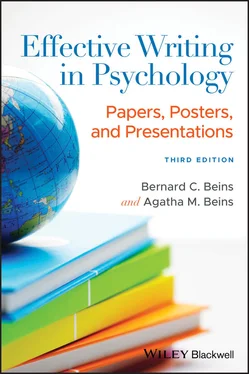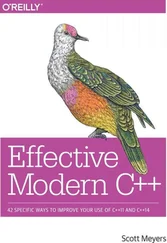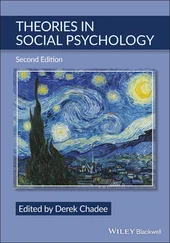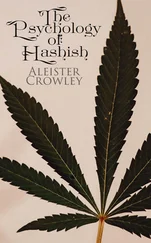Bernard C. Beins - Effective Writing in Psychology
Здесь есть возможность читать онлайн «Bernard C. Beins - Effective Writing in Psychology» — ознакомительный отрывок электронной книги совершенно бесплатно, а после прочтения отрывка купить полную версию. В некоторых случаях можно слушать аудио, скачать через торрент в формате fb2 и присутствует краткое содержание. Жанр: unrecognised, на английском языке. Описание произведения, (предисловие) а так же отзывы посетителей доступны на портале библиотеки ЛибКат.
- Название:Effective Writing in Psychology
- Автор:
- Жанр:
- Год:неизвестен
- ISBN:нет данных
- Рейтинг книги:3 / 5. Голосов: 1
-
Избранное:Добавить в избранное
- Отзывы:
-
Ваша оценка:
- 60
- 1
- 2
- 3
- 4
- 5
Effective Writing in Psychology: краткое содержание, описание и аннотация
Предлагаем к чтению аннотацию, описание, краткое содержание или предисловие (зависит от того, что написал сам автор книги «Effective Writing in Psychology»). Если вы не нашли необходимую информацию о книге — напишите в комментариях, мы постараемся отыскать её.
Effective Writing in Psychology: Papers, Posters, and Presentations
Effective Writing in Psychology's
Effective Writing in Psychology: Papers, Posters, and Presentations
Effective Writing in Psychology — читать онлайн ознакомительный отрывок
Ниже представлен текст книги, разбитый по страницам. Система сохранения места последней прочитанной страницы, позволяет с удобством читать онлайн бесплатно книгу «Effective Writing in Psychology», без необходимости каждый раз заново искать на чём Вы остановились. Поставьте закладку, и сможете в любой момент перейти на страницу, на которой закончили чтение.
Интервал:
Закладка:
Furthermore, you want to pick research questions that are not so broad that you end up with too much information to sort through, and you do not want your topic to be so narrow that you cannot find enough information. Think about the difference between the following two focal questions: (a) What is the best strategy for students who are trying to learn material for a test? and (b) Do students learn more by studying in a single, long session or in a series of shorter sessions? The first question might be useful when you are starting your pre‐research because it is broad; however, because it is so broad it will be very difficult for you to answer thoroughly and meaningfully, even in an article‐length paper. Instead, you could use question (a) to guide your pre‐research to form a question more similar to question (b).
In order to assess the academic value of a research topic, consider your audience and why they would or should be interested in your topic. When you write an academic paper, you are taking part in an ongoing conversation among psychologists, and part of your job as a writer is to convince these psychologists that your contribution to the discussion is meaningful and important. Therefore, whether you are writing about your own original research or building on others' research, if you approach your topic in a new way or offer a thoughtful critique of existing scholarship, you can strengthen the academic value of your writing.
Locating Relevant Sources
During your pre‐research phase, two sources that may be useful are the texts you have read in a class and the instructor teaching the class. Look through the syllabus for a topic that interests you. Unless the instructor has specifically identified a source as unreliable or a topic as off‐limits, these articles and textbooks could offer a number of possible paper topics. Additionally, your instructor is presumably knowledgeable about the topics covered in the class, so she or he can help you brainstorm research topics or questions. Although you probably will not cite these sources in your paper, both can be useful in the pre‐research stage, when you are still deciding which topic to explore.
During the process of choosing a topic, you might also rely on both scholarly and popular sources. Popular sources, such as newspapers, magazines, and many websites, provide brief overviews of scientific research. Journalists write for a lay audience, so they present information in a way that is easy to understand, and you can probably identify the article's main points without trouble. These sources often have sections on science and health, so you can skim through several different issues to find out what research is newsworthy. You can also find nonacademic resources specifically related to psychology, such as those listed in Table 2.2.
Table 2.2 Nonacademic Sources of Information Related to Psychology
| Source | URL | Publisher |
|---|---|---|
| Monitor on Psychology | https://www.apa.org/monitor | American Psychological Association |
| APS Observer | https://www.psychologicalscience.org/observer | Association for Psychological Science |
| The Psychologist | https://thepsychologist.bps.org.uk | British Psychological Society |
| Scientific American Mind | https://www.scientificamerican.com/mind | Springer Nature |
Professional organizations such as the American Psychological Association, the Association for Psychological Science, and Society for Community Research and Action often have “Resource” pages within their websites, making them another useful place for pre‐research and preliminary research.
If a publication is not open access, you might find it through public and university libraries, either in hard copy or through internet databases such as LexisNexis. EBSCO, and Academic Search Premier. Through databases you can plug in keywords (such as “abnormal psychology” or “subliminal advertising”) or names of researchers and then skim through the results to see if any articles interest you.
Remember, though, that popular sources that are not directly associated with professional organizations tend to focus on controversy and may ignore important information if it is not sensational, so you need to verify through scholarly sources any ideas you find in popular sources. This verification will also help you weed out studies that are pseudoscience or that fail to meet the standards of academic scholarship. (See Chapter 3for more information about finding and evaluating sources.)
Furthermore, be aware that popular sources frequently relay very current information, and journalists and websites may report on scientific work before the researchers have published an article in an academic journal. You might not be able to find an academic study referred to in an article or online, but one characteristic of academic scholarship is that it builds on previous research and writing. Consequently, if you come across an interesting study a popular source, you will most likely be able to find other research on this topic in academic journals.
Even with the range of sources you consult for pre‐research, you might continue to have trouble thinking of topics or finding resources on a specific topic. Libraries can offer additional assistance in two ways. First, most libraries have one or more reference librarians, and some libraries make it possible for you to call or email questions to their librarians. Librarians are there to assist patrons, so don't hesitate to contact one for help with your research.
Additionally, university libraries generally have links to internet resources by topic or subject. If you do a Google search for “libguide” (standing for “library guide”), you will see such resources from different institutions. For example, within the Rutgers University Library website, there is a subject research guide at the following URL: http://libguides.rutgers.edu/index.php. If you click on the topic “Psychology/Behavioral Sciences,” you will be led to a series of tabs for items such as citation indexes, electronic journals, psychology organizations, and career and professional resources. For some of the links, only Rutgers students have access; however, other links are open to the general public, and if you are affiliated with a university, that university's library resources should be available to you. Other publicly available links, like the Open Directory Project ( http://odp.org), lead you to an array of resources on a variety of topics, including psychology (listed under the “Science” heading).
Preliminary research can lead you to popular sources, but it is also ideal for identifying a number of potentially relevant scholarly texts. Scholarly texts are those written by academics for other academics in that field. Thus, an encyclopedia entry on schizophrenia, because it is written for a general audience, is not a scholarly source, even though it may contain accurate information. The scholarly sources you want to find are those that either report the results of original research or that develop an argument based on others' academic research. Generally, you will find these sources in academic, or peer‐reviewed, journals.
We recommend using your university library website when you start searching for scholarly sources. For many libraries, the default search bar—often found on the home page—covers everything you might be able to access: books, articles, DVDs, theses and dissertations, and perhaps archival collections. Limiting your search to the library catalog and article databases such as PsycINFO and Academic Search Complete/EBSCOhost are most likely to direct you to scholarly sources. The library catalog will offer results in print form: books located in the stacks, reference books, and occasionally government publications.
Читать дальшеИнтервал:
Закладка:
Похожие книги на «Effective Writing in Psychology»
Представляем Вашему вниманию похожие книги на «Effective Writing in Psychology» списком для выбора. Мы отобрали схожую по названию и смыслу литературу в надежде предоставить читателям больше вариантов отыскать новые, интересные, ещё непрочитанные произведения.
Обсуждение, отзывы о книге «Effective Writing in Psychology» и просто собственные мнения читателей. Оставьте ваши комментарии, напишите, что Вы думаете о произведении, его смысле или главных героях. Укажите что конкретно понравилось, а что нет, и почему Вы так считаете.












